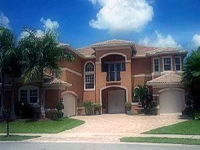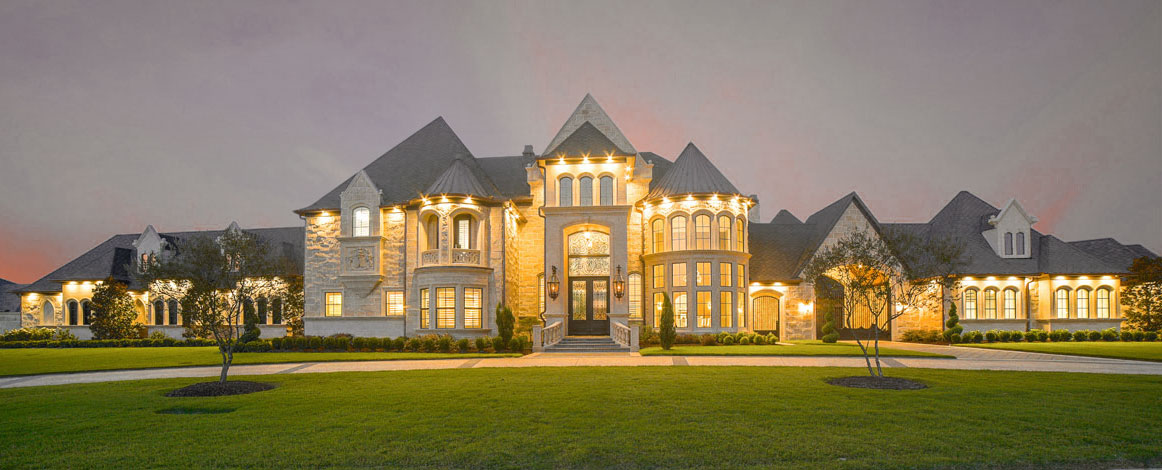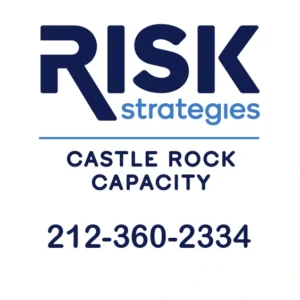How Much Should I Insure My Home For? As an Insurance Agent that specializes in Home Insurance, I am without exception, always asked the same question when people are shopping for home insurance:
Insurance, I am without exception, always asked the same question when people are shopping for home insurance:
How Much Should I Insure My Home For?
Here are a list of resources not to use when trying to determine how much you should insure your home for:
-
Real Estate Agents
-
Legal Advice from Lawyers
-
Mortgage Companies
-
Home Lenders
-
Banks
There is only one real answer and only one reliable source to turn to:
A Skilled, Experienced and Licensed Home Insurance Agent
A: The Amount it Would Cost to Rebuild it or the Amount it Would Cost to Replace it.
The Home Buyer Insuring a Home
When I get a call and someone is looking to insure their home, when asked, a prospective buyer will usually tell me the coverage amount they request for their dwelling is one of two numbers.
Myth:
They are looking to insure the house for the cost of the home, assuming that if the house is lost in a catastrophe, they would be remunerated.
Fact:
In the event that your house burns down or is destroyed and you are paid the purchase amount of your home, the amount of money you would recover would be the cost of the ENTIRE PROPERTY. This means that you would receive a check for the cost of the Home and the Land. You would therefore have enough money to rebuild your house plus the value of the land left over. In this scenario you would be able to rebuild a much larger home. In metropolitan areas where land value is excessively high, or where you have a large parcel of land, you would be able to build a much larger house resulting in a larger completed home value. In other words you would profit from an insurance claim, which, by law is illegal. Payment of an insurance claim is an indemnification transaction, not a profiting one.
Myth:
They are looking to insure the home for the Mortgage Amount or Loan Amount.
Fact: Like the previous scenario, if you are in an area where the land values are high, the mortgage amount could easily exceed the cost to rebuild the home. This, like the prior example, places you in a situation where you may potentially profit from a loss.
The Home Owner Looking to Refinance
Myth:
My Mortgage Broker or Loan Officer told me I need to insure the house for the amount of the loan.
Fact:
A Mortgage broker, Loan officer or bank requiring you to insure your home for more than the cost to rebuild is not only frivolous, it is a Violation of State Banking Law and Federal Banking Law to Require you to Insure your Dwelling for More than the Cost to Replace it or Rebuild it, this is also referred to as the cost of the improvements.
If a mortgage company denies a loan when you are insuring your home for replacement cost and not insuring the home for the loan amount, they are subject to fines and penalties. Feel free to print a copy of the law to take with you to the mortgage closing.
Similar to someone calling me and asking to insure a brand new stock $25,000 Nissan Altima for $50,000, insuring a home that would cost $250,000 to rebuild for $500,000 is a waste of money. In the event of a total loss, if it is determined that the cost to replace your home would be $250,000 and you have insured it at $500,000, you will not receive $500,000. You will be given the cost to rebuild the home or $250,000 aside from any coverage you may have on your contents or personal property.
Like the Nissan, if your $25,000 Altima is stolen, there is no way an insurance company will give you $50,000. It would be in their interest to purchase you a new Altima and indemnify you, or bring you back to whole. By doing so they are essentially, putting you back into the same position you were in before the loss.
If the difference in cost to insure a home for $500K vs $250K is $500 a year, then over a 10 year period you will have thrown away over $5,000.
The Home Owner Looking to Re-shop or Replace their Current Home Insurance Policy
Myth:
I should replace my previous policy with one that has the same exact coverage.
Fact:
No, you should not, now is the perfect time to reevaluate what coverage you have.
If you purchased your home 20 years ago, chances are, if your insurance agent was looking out for your best interest, they included an Inflation Guard on your home insurance policy. What an Inflation Guard is, is a method of annually increasing your coverages to account for increases in labor costs and material costs. If you can imagine a home in 1960 costing $30,000, including the land, insured for $25,000, 40 years later, without any substantial upgrades outside of routine maintenance, the home may very well be worth $500,000, and $250,000 to replace. Without an inflation guard in place, the home would still be insured for $25,000, barely enough to replace a kitchen these days. However with an inflation guard in place of about 5%, that $25,000 would now be $176,000. Because of periods of time where material costs, labor costs, and inflation may have been out of line with the inflation guard like between 1999 and 2005, after many years, because of compounding multiplicities, your coverage may be way out of line with your coverage needs.
In addition to inflation there is another home insurance coverage gap to consider. Despite our agency often sending out renewal questionnaires asking if any upgrades, extensions, dormers or renovations have been performed, people rarely reply. If you have renovated, expanded or upgraded your home have you increased your coverage to protect that investment?
Many times home owners add rooms, bathrooms, renovate kitchens or add wings or floors without considering the impact it may have on rendering their homes grossly under insured.
How To Make Sure Your Home Is Properly Insured and that your Home is Insured for the Right Amount
Call A Skilled, Experienced and Licensed Home Insurance Agent.
The best resource for determining how much you should insure your house for is someone that represents the company that will be insuring it, They under stand how home insurance works, they understand home insurance valuations and they understand the coverages.
An Experienced Home Insurance agent that cares about what may be your biggest investment and biggest asset should take the time to walk you through a Home Replacement Cost Estimator.
If an appraisal has been completed for your home, there should be a section that shows some replacement costs.
There should be a cost approach figure, which is usually the loan amount and means nothing.
There should be a depreciated value figure, which is what the depreciated materials are currently worth, this relates to actual cash value, and should not be a factor for you unless you plan to demolish the house.
There should be a Cost of Home New figure, which if based on solid and standard methodology, should be the replacement cost. If the notes indicate “Based on various information” don’t rely on it, ask your home insurance agent for an Replacement Cost Estimator evaluation.
Q: What is A Home Replacement Cost Estimator?
A: A Home Replacement Cost Estimator is a tool that we at Castle Rock Capacity Agency use to assist you in determining how much to insure your home for. The Replacement Cost Estimator helps us determine the proper amount it would cost to rebuild your home by taking into consideration the following costs associated with rebuilding a house:
- Where your home is located (because labor & material costs vary with location)
- How old your home is
- The finish of your home
- The type, finish and number of bathrooms you have
- The type, finish and number of kitchens you have
- The size of your home or the square footage of your home
- The exterior and interior construction of your home
- The types of windows and doors your home has
- Any exterior structures you have i.e. pool, porch, deck, patio, gazebo…
- The amenities your home has, and what they cost to replace like, central air conditioning, central alarm systems, central vacuum, centrally installed audio systems, wet bars
- The type of flooring you have
Q: What Coverages Should my home insurance include?
A: In addition the the amounts of coverage you have on your home there are other coverages you need to consider, amounts become less material when you do not consider the types of hazards you are covered for.
The following are Home Insurance Coverages you should consider in addition to how much you should insure your home for:
- Replacement Cost Coverage on your Home vs Actual Cash Value
- Replacement Cost Coverage on your Contents or Personal Property vs Actual Cash Value
- Identity Fraud Coverage. In the electronic age this is an increasing concern and a rapidly growing cause of loss.
- Back Up of Sewers and Drains. This cause of loss is excluded on most home insurance coverages and is a substantial cause of many claims.
- Personal Injury Coverage. This is not an included coverage and covers suits arising from liable or slander.
- Scheduled Personal Property. There is little or no coverage for jewelry, furs, camera equipment, sporting goods (golf),home computers, fine arts, memorabilia.
- Tree & Shrub Coverage. Many people spend thousands for landscaping work. In the event they are destroyed, you may find you only have very limited coverage for your expensive trees & shrubs.
- Special Form Coverage for Personal Property. Many home insurance policies cover your home for Special Form Coverage Losses and restrict personal property coverages to Broad Form Coverage.
Let us assist you with your Home Insurance Policy Coverage.
Click Her for for More Information on Home Insurance .
Click here for a Free Home Insurance Quote .


